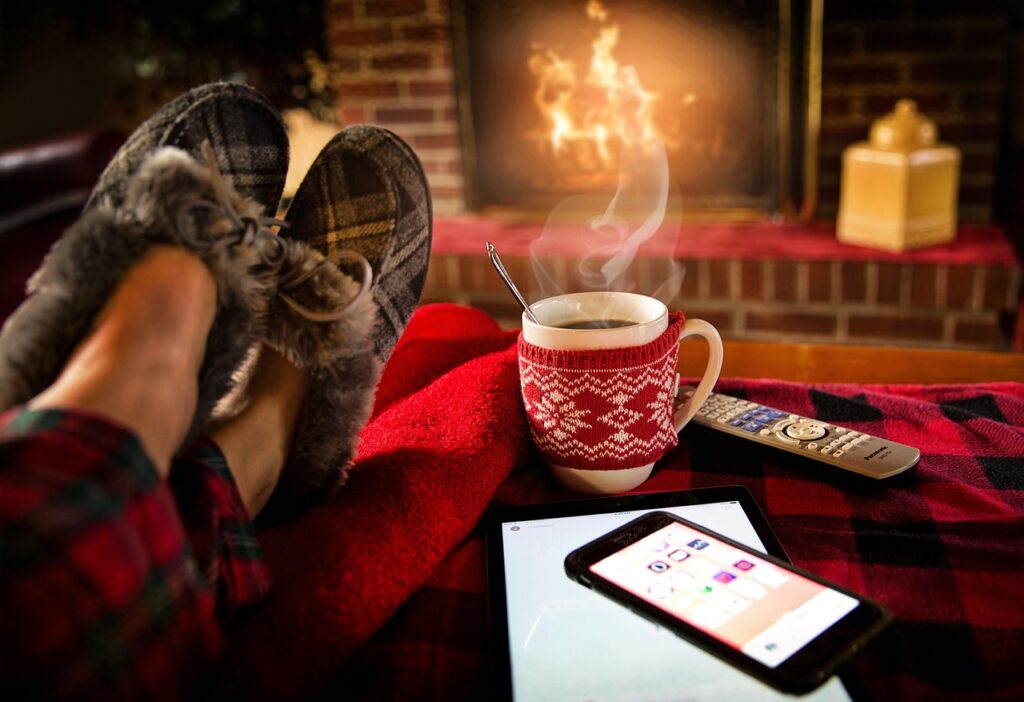Today is your day to relax! Come on, it’s literally National Relaxation Day and a day that should be honored with what it is all about! Americans have proven to be more stressed out than ever. Why? Well, perhaps it’s still the repercussions of living through a pandemic, the effects of trauma that live stored in the body, the fact that life, in general, can be hard, or even that when all is well in the world, stress can creep in!
Stress doesn’t have to be seen as a negative thing and relaxation shouldn’t be either! Too many of us are thinking of relaxation as a luxury or a “sometimes,” thing that should be rationed or preserved for special occasions. Relaxation however is the opposite! It’s an everyday thing! In fact, you deserve to have the right and permission to relax right now! You don’t have to lie down, call out of work, or cancel anything, it can start by taking in a full deep breath and slowly exhaling. Try it! Pause your reading and try breathing in for 4 seconds and out for 6 or more. Do this 5 times, even better, with your eyes closed. If you are in public, just soften your gaze and no one will know.
How do you feel? More relaxed? Maybe less tension in your body? It can be just that simple!
Relaxation is essential to our wellbeing and it’s important we incorporate it into our lives. Anyone who has been living under extreme stress or prolonged stress can tell you, it takes a toll on you physically and mentally. The drain of stress will eventually reach your wallet as well as you try to find ways to reduce stress….buying new organizers, apps on your phone, going to the doctor for new symptoms arising, or finding yourself talking to your therapist about your stress that’s bleeding into issues at work, relationships, and past times. When really, if we found ways to relax, known as managing our stress, we would find ways to improve our daily lives and increase our well-being while we’re at it.
The National Institute of Health says, “In psychology, relaxation is the emotional state of low tension, in which there is an absence of arousal, particularly from negative sources such as anger, anxiety, or fear.”
How do you relax? As in, find a state of low tension? A time where you aren’t being aroused by anything, but especially by anger, anxiety, or fear?”
It sounds simple, but how many times a day do you just stop, breathe and be? Do you ever give yourself permission to enjoy something slow or to do nothing at all? If you are starting to list your excuses now: too busy, kids, time, etc. We got it! We all have our own list. But we know that the excuses to not relax, to deny relaxation, and welcome stress constantly and consistently can impact the quality and even the quantity of our lives.
Relaxation is a hard thing to describe. You may think relaxing is being lazy or see people relaxing and think it’s not for you! But what they are doing and feeling is perhaps one of the most important parts of their lives! Remember how good the five breaths just felt? That instant feeling of, “Wow, I guess I was feeling stressed.” Just taking a 5-breath break makes us feel better, and this is known as the relaxation response.
The relaxation response is defined as your personal ability to make your body release chemicals and brain signals that make your muscles and organs slow down and increases blood flow to the brain. The relaxation response is a mentally active process that leaves the body relaxed. Believe it or not, this is best done in an awake state. Your relaxation response is trainable and with practice can grow and increase. Relaxation is almost like a muscle, the more you use it the stronger it becomes. While your excuse may be that you will relax while you sleep, that doesn’t quite cut it here. How do you find this great head space called the relaxation response? Well, to be honest, it takes practice. Some people will find it naturally and others will have to spend more focused time looking for this response, but it’s worth it! Today, scientists have shown that such practices lower heart rates, blood pressure, and oxygen consumption, and they alleviate the symptoms associated with a vast array of conditions, including hypertension, arthritis, insomnia, depression, infertility, cancer, anxiety, and even aging.
To find a relaxation response you can do many things. What will matter most is finding what works for you! What is relaxing for some isn’t relaxing for all. Maybe try taking yoga, meditation, coloring, journaling, walking, and baths at night. You get to choose! Try your relaxation of choice for a good week or so and see, “How am I feeling? Is this serving me? Do I want to try something else? Add in more? “
Make a commitment to yourself to start relaxing on purpose. Not just because it’s National Relaxation Day, but because you deserve to be the healthiest you can be inside and out. Sometimes we put ourselves last while we give everyone else permission to be their best selves and to take care of themselves however they need to. You too have that permission and in reality, it’s also your greatest responsibility. So, whoever needs to hear this: Relax Already!


